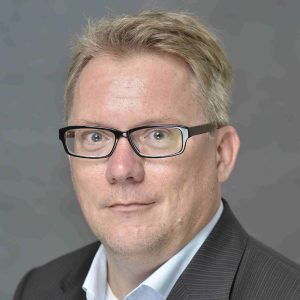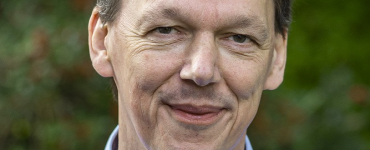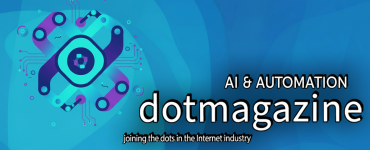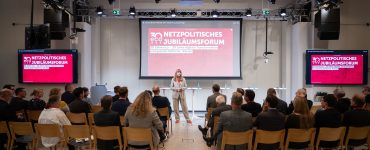Hello Mr Plagge, we are pleased to welcome you as an eco member.
- Could you give us a brief introduction to your company in 2-3 sentences?
The Eclipse Foundation is an independent, non-profit foundation based in Brussels that provides individuals and organisations with a mature, scalable and business-friendly environment for collaboration and innovation in open-source software. It hosts the Eclipse IDE, Jakarta EE, and more than 415 other open-source projects, specifications and frameworks in many technology areas. These include cloud and edge applications, the Internet of Things, artificial intelligence, automotive, systems engineering, distributed ledger technologies and open processor designs. The large number of members of the Eclipse Foundation focus on open-source technologies that have an impact on their industry in working groups. SAP, Airbus, BMW or TÜV SÜD are included among the more than 320 members. Among our focal points in Europe are the Eclipse Tractus-X project, which aims to develop systems to support the Catena-X network, and the Eclipse Dataspace Connector project, which seeks to provide a connector framework for sovereign, cross-organisational data exchange. We are also working with the Industrial Digital Twin association to drive forward the Industry 4.0 platform, and we’re a member of the European cloud initiative Gaia-X.
- Which digitalisation topics are particularly important to you?
As an open-source organisation, the Eclipse Foundation is particularly committed – as the name makes clear – to the topic of open source. Our goal is to create an environment in which software is developed through transparent collaboration – across the boundaries of individual sectors, industries and companies. Through this collaboration, everyone gets to benefit from the know-how of their partners. As a European organisation, we also want to contribute to digital progress and strengthen European digital sovereignty.
- What are the special challenges of your industry now and how are you working on them?
We find that the European mentality towards open source sometimes has a strong need for control – especially in the “traditional” industries of the region, such as the automotive industry. As the Eclipse Foundation, we have the opportunity to build trust in our technologies by leveraging the transparency of open-source software. This is precisely why we are organised into working groups that provide a neutral environment for cooperation and that prevent antitrust problems. The members of the working groups are companies or individual developers from a wide range of sectors who are interested in a particular topic. Our clear, vendor-neutral intellectual property rules facilitate collaboration between organisations to drive innovation. Working groups have a long tradition at the Eclipse Foundation: The Eclipse IoT Working Group, which is all about the Internet of Things, is celebrating its tenth anniversary. Participants include Bosch.IO, DB Systel and Red Hat. One of our recently established working groups is dedicated to the software-defined vehicle, bringing together companies such as Bosch and Microsoft. In addition to the working groups, the Eclipse Foundation also offers its members open innovation processes and events for exchange. With our work, we want to contribute to finding new ways of collaboration in areas that are not characterised by competition. Through cooperation between different companies and the results and advances that emerge, stakeholders can increase the scale, scope and efficiency of their applications without each player having to start from scratch.
- How do you expect your membership in the eco Association to support you in this regard?
As a member of the eco Association, we want to discuss the value of open source with other members, exchange ideas, learn new things and help drive the technology forward. What is particularly exciting for us is the wide range of industries represented in the association: from e-commerce and social networks to research institutions and telecommunications, to name just a few. We are convinced that open source can be beneficial in all these areas and accelerate the development of new, transparent technologies. In addition, the topics relevant to the eco Association, such as the Internet of Things, cloud computing or security, are also important focal points. The Association’s environment helps us stay in touch with key players in the European digital community and advance one of our main goals – European digital sovereignty.
- What opportunities does digitalisation offer us in the future?
As the Eclipse Foundation, our goal is to create an environment that enables all stakeholders to create transparency around technologies and software and, through digitalisation, to foster international collaboration across national and corporate boundaries. This is the only way to make it sustainable and equitable – including self-determination over user data and alignment with industries in Europe.
Thank you very much for the interview, Mr Plagge!
Michael Plagge has been working at the Eclipse Foundation as Director Ecosystem Development since January 2021. He is responsible for the maintenance and growth of the Eclipse ecosystem with a special focus on the DACH region. He joined the Eclipse Foundation after 4 years in various positions at Alibaba Group. He initially served as Director Business Development Automotive and Head of Autonavi Europe before joining Alibaba Cloud as Business Development Director. Prior to joining Alibaba Group, Michael worked for the automotive supplier Elektrobit for eight years. From 2013 to 2016, he was General Manager Elektrobit Automotive (Shanghai) Ltd.




